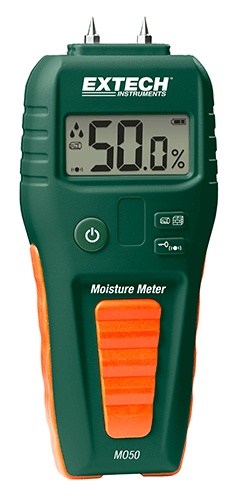The Scientific Research Behind Moisture Meters: How They Function and Why They're Vital
The Scientific Research Behind Moisture Meters: How They Function and Why They're Vital
Blog Article
The Ultimate Overview to Dampness Meters: A Comprehensive Overview and Exactly How They Can Conserve You Money
In the realm of building maintenance, building and construction, and numerous sectors, the importance of properly determining wetness degrees can not be overstated. Wetness meters serve as indispensable devices in identifying and checking moisture web content in products, aiding in avoiding expensive damages and making certain the top quality of products. Recognizing the nuances of different types of moisture meters, their applications, and the prospective cost-saving advantages they use can be a game-changer for businesses and professionals alike. Finding exactly how these tools can not just simplify procedures yet additionally add to financial cost savings is a journey worth embarking on.
Sorts Of Moisture Meters
One typical type is the pin-type wetness meter, which determines the electrical resistance in between 2 pins placed into a material. Pinless wetness meters, on the other hand, usage electromagnetic sensing unit plates to check a larger location without triggering damage to the material's surface area.

Moreover, there are also specialized dampness meters created for details materials like soil, grain, or hay. These meters give accurate dampness readings tailored to the one-of-a-kind properties of the product being evaluated. Infrared dampness meters measure the thermal buildings of a product to determine its wetness content non-invasively, making them beneficial for applications where pin or pinless meters might not be appropriate. Recognizing the different sorts of dampness meters offered can aid markets select one of the most proper tool for their specific dampness dimension demands.

Benefits of Using Wetness Meters
Dampness meters use important advantages in precisely analyzing and keeping an eye on wetness levels in varied materials and settings. One of the primary advantages of using dampness meters is the prevention of potential damage created by excess dampness.
Additionally, making use of moisture meters can result in boosted energy effectiveness. By identifying areas with high wetness degrees, such as leakages or inadequate insulation, adjustments can be made to boost power conservation and decrease utility expenses. In farming settings, dampness meters play an important duty in maximizing plant yields by making it possible for farmers to monitor dirt moisture levels and make notified irrigation decisions. Generally, the advantages of utilizing wetness meters extend across different markets, providing cost-effective options and promoting much better quality assurance methods.
Exactly How to Pick the Right Moisture Meter
When picking a dampness meter, it's vital to ensure that the meter is appropriate for the certain material you will be screening. Various materials have differing electric properties that can influence moisture readings, so selecting a meter created for your material is essential for accurate outcomes. By very carefully evaluating these factors, you can select a moisture meter that fulfills your needs and supplies precise moisture measurements for your jobs.
Appropriate Strategies for Dampness Meter Usage

Price Cost Savings With Moisture Meter Applications
Just More Info how can the tactical usage of dampness meters lead to substantial cost financial savings throughout various sectors? Wetness meters play a crucial duty in expense savings by protecting against possible damage and see this making certain quality assurance in different markets. In the farming industry, wetness meters help in identifying the optimum time for gathering crops, avoiding over-drying or excess wetness that can impact the end product's top quality. This precise surveillance aids farmers avoid unneeded losses and maximize their return.
In a similar way, in building and construction, dampness meters assist avoid pricey problems by detecting wetness degrees in structure products, such as wood or concrete, which can lead to architectural concerns otherwise addressed promptly. By identifying trouble locations at an early stage, specialists can take rehabilitative actions to stay clear of extensive repairs or replacements, eventually saving time and money.
In addition, in the food handling industry, dampness meters are important for monitoring item top quality and guaranteeing conformity with safety and security laws. By precisely gauging dampness material in food, producers can avoid spoilage, maintain quality, and lower waste, leading to considerable price financial savings. Generally, the tactical application of wetness meters is a beneficial financial investment that can bring about substantial expense decreases and boosted performance throughout different sectors.
Conclusion
In conclusion, moisture meters are valuable devices for measuring and detecting moisture levels in different products. By utilizing the ideal wetness meter and following proper strategies, individuals can successfully avoid pricey problems created by excess wetness.
Dampness meters serve as essential tools in detecting and monitoring moisture content in products, helping in preventing costly problems and making certain the top quality of products. Infrared wetness meters gauge the thermal homes of a product to establish its dampness web content non-invasively, making them beneficial for applications where pin or pinless meters may not be ideal.Moisture meters offer invaluable advantages in properly analyzing and monitoring wetness levels in varied materials and atmospheres. In farming settings, dampness meters play an essential role top article in optimizing crop yields by enabling farmers to monitor dirt dampness degrees and make educated irrigation choices.In conclusion, wetness meters are useful devices for detecting and measuring dampness degrees in various products.
Report this page